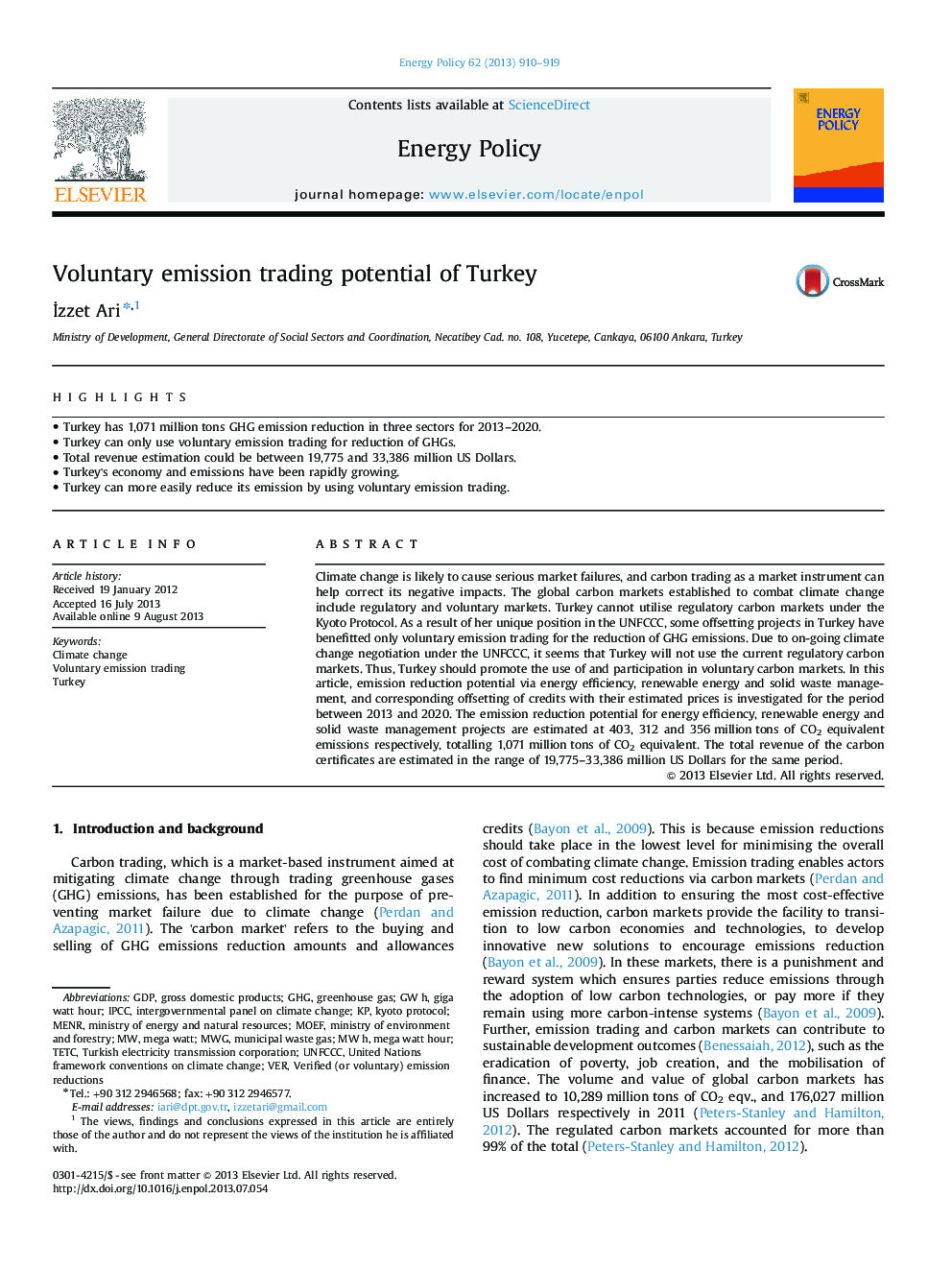| Article ID | Journal | Published Year | Pages | File Type |
|---|---|---|---|---|
| 7404730 | Energy Policy | 2013 | 10 Pages |
Abstract
Climate change is likely to cause serious market failures, and carbon trading as a market instrument can help correct its negative impacts. The global carbon markets established to combat climate change include regulatory and voluntary markets. Turkey cannot utilise regulatory carbon markets under the Kyoto Protocol. As a result of her unique position in the UNFCCC, some offsetting projects in Turkey have benefitted only voluntary emission trading for the reduction of GHG emissions. Due to on-going climate change negotiation under the UNFCCC, it seems that Turkey will not use the current regulatory carbon markets. Thus, Turkey should promote the use of and participation in voluntary carbon markets. In this article, emission reduction potential via energy efficiency, renewable energy and solid waste management, and corresponding offsetting of credits with their estimated prices is investigated for the period between 2013 and 2020. The emission reduction potential for energy efficiency, renewable energy and solid waste management projects are estimated at 403, 312 and 356 million tons of CO2 equivalent emissions respectively, totalling 1,071 million tons of CO2 equivalent. The total revenue of the carbon certificates are estimated in the range of 19,775-33,386 million US Dollars for the same period.
Keywords
Related Topics
Physical Sciences and Engineering
Energy
Energy Engineering and Power Technology
Authors
Ä°zzet Ari,
